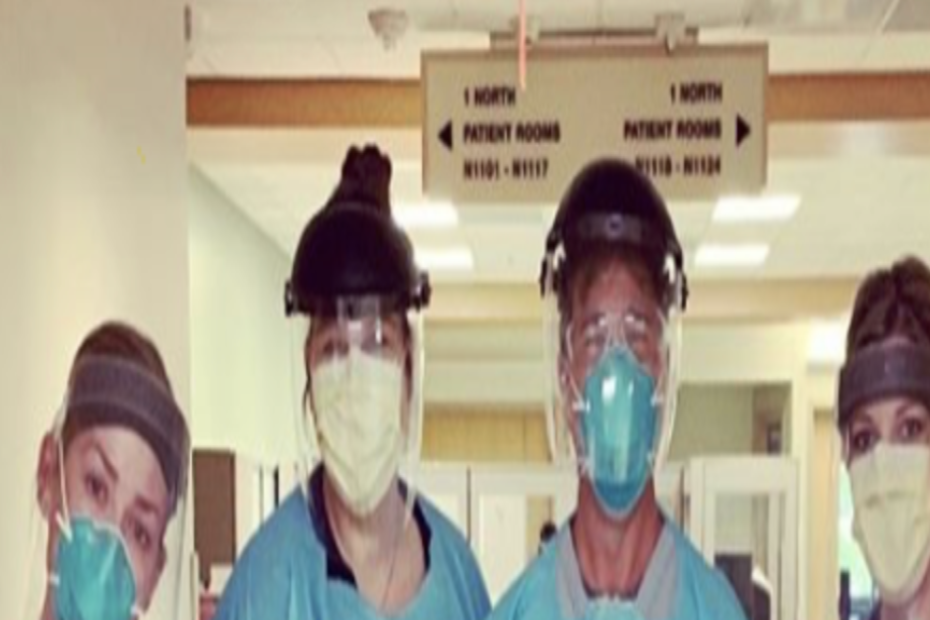Anyone who reads the news or watches it on television is aware of the dangerous settings in which doctors, nurses and other health care workers have been forced to carry on the war against COVID-19. Apart from the inherent risks of treating patients with a highly contagious disease, shortages of Personal Protective Equipment (PPE) have been widespread and recurring. We have all read and seen the poignant stories of medical personnel working under conditions that neither we nor they could have imagined anywhere short of a wartime battlefield.
As of today, there is no accurate record, or reliable estimate, of how many health care workers have died of COVID-19. Two weeks ago, on April 14, the Center for Disease Control reported that 9,200 health care workers had tested positive for the coronavirus and 27 had died. Officials stressed at the time that the count was drawn from just 16% of the nation’s COVID-19 cases, so the true numbers of health care infections and deaths were unquestionably far higher. Moreover, whatever the true count was on April 14, more individuals have inevitably become infected and died. Kaiser Health News, in partnership with the Guardian newspaper, have established a project to identify health care workers who became COVID victims and to publish brief biographical information on each. The project, Lost on the Frontline, “aims to document the lives of health care workers in the U.S. who died from COVID 19, and to investigate why so many are victims of the disease.” The initial biographies are published on the website of Lost on the Frontier. They do not make for easy reading. These are wonderful people who died fighting for the lives of their patients and, in a real sense, for all of us. I urge readers to go to the website and take in as many of their stories as you can.
The health care workers we have lost deserve the tribute of Lost on the Frontier, and I hope that in time the project will become more widely publicized. But the fallen heroes and their families deserve more. Specifically, I suggest that the federal government provide death benefits as it did for first responders after 9/11. More recently, it was announced on Monday that families of health care workers in the United Kingdom who die of COVID-19 will receive a death benefit of 60,000 pounds ($75,000). Surely, America can do as well. In some cases, families of health care workers here will receive support from private charities or crowdfunding, but such relief is available on a hit or miss basis. Moreover, what the casualties of COVID-19 deserve is not merely charity support but the honor and recognition conveyed by a federal award on behalf of a grateful nation.
First responders, police and firemen, are in a somewhat different category. Unlike most health care workers, they understand from the outset that their lives may be put at risk at any time from armed criminals or burning buildings. Such public safety officers receive protection under the Public Safety Officers Benefit Program, which provides death and disability benefits for death or injury incurred during the line of duty. While it may be difficult or impossible to prove when an officer or fireman became infected by COVID-19, legislation is pending in the House of Representatives to address that problem. The Public Safety Officer Pandemic Response Act of 2020 (PSOPRA), would provide that “COVID-19 shall be presumed to constitute a personal injury…sustained in the line of duty by a public safety officer and directly and proximately resulting in death, unless such officer was not on duty during the 45-day period prior to being diagnosed with COVID-19.” No comparable bill is pending in the Senate, but Senator Charles Grassley reportedly favors such legislation.
The principal sponsor of the PSOPRA, House Judiciary Chairman Jerrold Nadler, has acknowledged that:
While this bill is focused on public safety officers, we realize that many other Americans are working on the frontlines of this crisis – doctors, nurses, grocery store workers, and others deemed essential – and we fully support efforts to also provide benefits to these heroes through other measures. We stand ready to work with others in Congress and in the Administration to assist these essential workers who are putting their lives on the line during this crisis.
Quite so. I would urge Congress not only to pass legislation along the lines of the PSOPRA, but to give urgent attention to “other measures” covering health care personnel. They are, after all, even more than first responders, the frontline warriors engaged in heroic combat against COVID-19.

Great idea, Doug.
What an excellent idea. I have three friends currently on the front lines working in hospitals. I would LOVE to see acknowledgment for any of these warriors who suffer a final sacrifice for their noble work.
Brilliant. Yes, yes, yes!
Comments are closed.